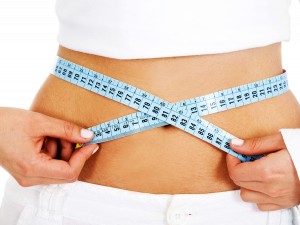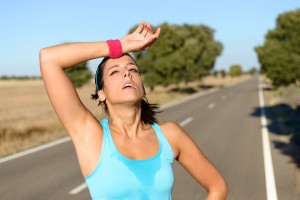 Billions of dollars are made in the weight loss industry. Many people strive to gain the perfect physique and pay much in order to reap the gains. Unfortunately, amongst many programs that do work to help people lose weight and keep it off, there are many programs that do not work in the long run. As a result, I hope to help debunk some of the mythical ideologies that some of these programs purport to work.
Billions of dollars are made in the weight loss industry. Many people strive to gain the perfect physique and pay much in order to reap the gains. Unfortunately, amongst many programs that do work to help people lose weight and keep it off, there are many programs that do not work in the long run. As a result, I hope to help debunk some of the mythical ideologies that some of these programs purport to work.
The Myths:
You can lose weight without diet changes and exercise.
In order to maintain weight loss goals, you need to change your diet and increase exercise to a level that balances energy in and energy out. This differs between everyone, and so, you may require more or less calories, and more or less exercise than another individual.
You can lose a lot of weight all at once and keep it off.
Unfortunately, this myth is the worst one of them all. In order to achieve weight loss that will last, an individual should not exceed losing 1-2 pounds per week. That being said, when an individual initially undertakes changing their diet and exercise patterns, they may undergo more than 1-2 pounds of weight loss per week, which is normal. Anything beyond the 1-2 pound weight loss puts an individual’s body into what I call “starvation mode”. As a result of this state, the body is more likely to accumulate weight because of fear of when it will get its “next meal”. In addition, if the individual “falls off the tracks” in regards to their weight loss program and gains back the weight they lost, they will most likely gain back more than what they initially lost, because once again, the body fears that it will not survive if put into another “starvation mode” and so uses the increased weight to protect itself.
You can go back to the way you were eating after discontinuing the program.
As was mentioned above, without appropriate diet and lifestyle changes, one cannot maintain weight loss. Therefore if you are eating more restricted and suddenly go back to the way you were eating before, you are more likely to gain weight. That being said, that does not mean you can never have a treat or have a cheat day. As I tell many patients, everything in moderation, including exercising and diet. You have to adopt a diet and lifestyle that will ultimately be realistic for you.
You can severely restrict calories for some time and still be healthy.
Once again, this myth is debunked by the explanation behind the debunking of the second myth. You will put your body into a starvation mode with severely restricted calories, resulting in an overall weight gain.
You can take a pill and it will help you to lose weight and keep it off.
Anything that causes you to lose more than 1-2 pounds per week is not sustainable. This includes various weight loss supplements. In addition, many of the weight loss supplements that do have profound effects have ingredients in them that can be harmful when taken long term. A naturopathic doctor may choose to put you on a supplement to help you through a plateau season, but beyond that, supplements will not help you maintain weight loss in a realistic manner.
Bottom Line: Aside from changing your diet, exercise and lifestyle, you cannot be guaranteed to maintain the weight loss that you gain. In order to keep it off, you need to maintain a lifestyle that consists of healthy dietary habits; adequate exercise; and appropriate lifestyle measures including adequate sleep, stress management, and everything in moderation. If you are interested in achieving weight loss that will work for you, consider contacting myself, and let me help you develop a weight loss strategy that will help you maintain the weight loss that you acquire.
Have you benefitted from reading this blog? Know someone that would benefit as well? Share, Like, Comment, or Tweet this article, and let me know what you think.
Some of the information provided above may not be appropriate for everyone, please consult with your doctor before trying any of the above. If you are interested in Naturopathic Medicine and wanting a different approach to your health care needs, contact Elisha Cook via the contact portion of this website.

